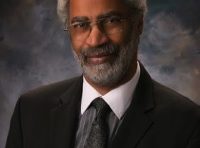Civility Corner: Strive to Be Inclusive
- Share
- Tweet
- Pin
- Share
by ORLAINE I. GABERT, Door County Civility Project
The third of the nine tools of civility is “Be Inclusive,” which seeks to expand our ability to listen and take in information.
In this, we can learn from two-year-olds, who, at that age, have typically become more verbal and want to do things for themselves. Frequently we hear them ask, “Why?” as each day they see more in their world and want to control it. They want knowledge, ideas, thoughts, imagination.
Like children, we all want information throughout our lives. Some of what we receive is fact, but a lot is opinion. Listening to opinions with which we agree is easy to do. Not so when we disagree. Yet we still need that information.
We must understand many points of view in order to fully understand an issue and the reasons for opinions other than our own. We need to be willing to accept that what we hear may change our view. To share a line from Antoine de Saint-Exupéry’s The Little Prince, “What is essential is invisible to the eye.”
When I heard that Hoda Kotb was starting a new podcast called Making Space, I knew those two words were the key to “Be Inclusive.”
Along with using the first two tools of civility, we begin by hearing every word that the other person is saying about their view. Then we clarify: ask questions to get more information when it’s an appropriate time to do so. Next, we seek to understand with our full selves until we have a thorough knowledge of the other person’s view. Finally, we consider by allowing ourselves to see how this perspective fits in with our own thoughts and whether we could change our views. We accept that as a choice that can be made.
In making space for other ideas, we retain information that allows us to deal more civilly with any issue we face. And one last tip from a highway sign: “Without Action, There Is No Inclusion.”


